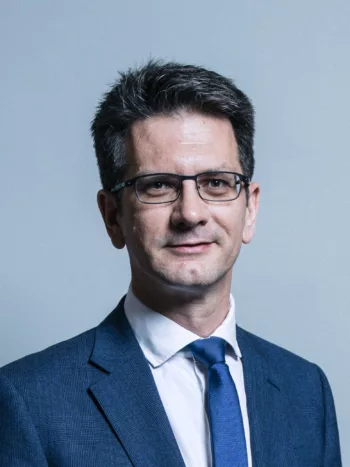
Concerns have been raised by UK Minister of State for Northern Ireland Steve Baker this week regarding the deeply entrenched segregation in the education system. In an address to the House of Commons, Minister Baker stated that there is ‘so much wrong’ with the current situation where many youngsters in Northern Ireland do not interact with peers from outside their religious or political background until their late teens.
Northern Ireland Humanists echoes these concerns, highlighting that Northern Ireland’s segregated education, a relic of Northern Ireland’s troubled past, is not only costly amounting to £600,000 a day according to a recent report but it also perpetuates social divisions.
Steve Baker expressed clear support for integrated education, stating:
‘That conversation needs to be had. I’ve made my position very clear and the Government’s position is very clear: we are in favour of integrated education.’
The minister’s comments highlight an urgent need for a shift in Northern Ireland’s education policy. While divided religious-based schooling remains the norm in Northern Ireland, the need for integrated schools leaves many young people disconnected from their peers of different religious backgrounds, fostering social division and misunderstanding.
There is also a notable lack of recognition and support for those who do not identify as either Catholic or Protestant in all of the school sectors in Northern Ireland including the integrated system. This group, often labelled as ‘other’, includes a growing number of individuals who identify as humanists, atheists, and those of non-Christian faiths. The current system fails to provide a fully inclusive environment for these students.
Stephen Farry, Alliance MP for North Down, agreed with Mr Baker’s sentiments, noting the ‘very significant demand’ for integrated schools across all communities in Northern Ireland. However, he also highlighted the financial challenge of transitioning from a divided to an integrated system in the face of declining budgets.
Northern Ireland Humanists encourages broadening the conversation around integrated education to consider the rights and needs of all students, regardless of their religious or non-religious beliefs.
The current system, focusing mainly on Catholics and Protestants, fails to accommodate the diversity of belief in Northern Ireland today. The recent passing of the Integrated Education Act will go some way to helping increase the number of integrated schools. However, it is time to rethink how we educate our children, ensuring they grow up in an environment that promotes understanding, respect, and equality. This is not just a matter of cost but of fundamental social justice.
Northern Ireland Humanists Coordinator Boyd Sleator commented:
‘Despite the progress we’ve made in other aspects of our society, our education system remains remarkably divided. Currently, only 7% of schools in Northern Ireland are integrated. This means that the vast majority of our children are educated separately, largely along religious lines. This is not conducive to fostering mutual understanding and respect among different religious and belief groups.’
Notes:
Read our news article about a NI child labelled as ‘other’
Read our news article about our first ever guide to navigate religion in Northern Ireland Schools.
Read our news article about recent laws to improve education in Northern Ireland.
For further comment or information, media should contact Northern Ireland Humanists Coordinator Boyd Sleator at boyd@humanists.uk or phone 07918 975795.
Northern Ireland Humanists is part of Humanists UK, working with the Humanist Association of Ireland. Humanists UK is the national charity working on behalf of non-religious people. Powered by 100,000 members and supporters, we advance free thinking and promote humanism to create a tolerant society where rational thinking and kindness prevail. We provide ceremonies, pastoral care, education, and support services benefitting over a million people every year and our campaigns advance humanist thinking on ethical issues, human rights, and equal treatment for all.
